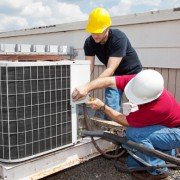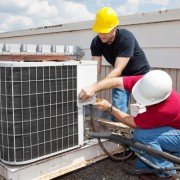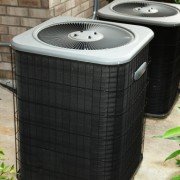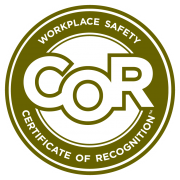If you are trying to be economic, you are best advised to not try to maintain a central HVAC equipment and a whole house air purifier simultaneously. Unless you have money to waste, you had better use those hard earned bucks to get other equipments for improving the quality of the air in your house.
A HVAC (or rather a Heating Ventilating, Air Conditioning) system shares your home’s central blower and ductwork. So unless you keep it squeaky clean and dust free it will sprout these irritable elements into the very air you breathe. And, this won’t change even if you add a swanky, pricey upstream filter system.
Most HVAC air purifiers are fixed before motors and fans in order to save them (the latter that is) from large granular stuff. There function therefore is not as an air cleanser. In fact they are not even equipped to purify your air; they have a meager 1000 cu. Foot/minute airflow, which is not a good enough speed to really cleanse your air. The air flow at each of its duct is only as high powered as a tiny fan!
The air from your whole house system does not blow quite the same everywhere. It chooses to flow through areas where it receives the least obstruction. Cool air has an affinity towards the lower part of the room, and therefore completely avoids the upper parts, especially the little corners. Wherever there is a little niche or cubbyhole it deposits dust and dirt. So entire house might be getting a number of air changes per hour, ultimately the lower part receives dirty air.
Imagine a flowing river with plunging bank cuts and tiny rapids. Consider what its speed will be if it is followed by lazy flats complete with sandbars. This is what your HVAC is like, full with rapid airflow and all, but ultimately not a very efficient air cleanser.
As a part of whole house purification system an HVAC blower has to function all the time. Most HVAC’s used at homes are not built to be strong enough to pull in the air through the well shut HEPA filter. Thus it must be ensured that they aren’t over run and in the process heated overtly. This is, however, unavoidable incase if your furnace filter is built of fiberglass and is kept unclean.
Another serious problem with HEPA is their habit of creating heavy static backpressure. Thus, they cannot be fixed directly into the regular residential system. To solve this problem therefore, vendors include an expensive bypass vent circuit and much stronger secondary purifiers. Most partial bypass systems are incapable of performing their required functions to the extent necessary. Therefore dirty air easily flows through the main duct.
Before buying and fixing a whole house air purifier make sure the air ducts in your system is cleansed out rigorously.
Given that we are not required to see or hear it regularly, we tend to bypass all thoughts of our air conditioning systems completely from our minds. Let’s be objective, obviously a whole house air cleaner is preferable to a portable air cleaner. Consider, suppose your portable air cleaner suddenly starts malfunctioning then you take it to your vendor asap. This doesn’t come in the way of your house’s heating or cooling which continues despite the air being unclean. On the other hand a minor glitch which you probably look beyond in case of a whole house system becomes a reason for you to run to your vendor in case of a portable system.
If you want to improve the quality of the air in your house reasonably try and get rid of all toxic sources. Make sure your ventilation is channelized plausibly and circulation is truly possible. Regularly clean your HVAC system, and don’t leave out any pan duct or coil. Keep replacing your furnace filters with the latest ones. Also, try and use premium chemical-capable portable room air-purifiers in your bedrooms.
If you still have money to spare spend it on getting a central vacuum system for your entire house. This will spit out all the dirty air in your house right outside. Else get yourself a quality sealed HEPA filter vacuum cleaner.
With additional money where available, consider installing a central vacuum system for the whole house, which exhausts 100% of all dirty air outside. Or choose a quality sealed HEPA filter vacuum cleaner.





